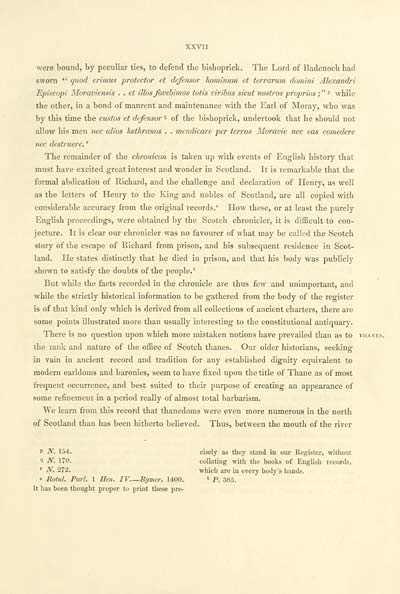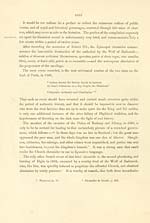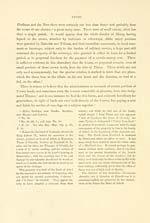Bannatyne Club > Registrum Episcopatus Moraviensis, e pluribus codicibus consarcinatum approximately A.D. MCCCC [i.e. 1400]
(43) Page xxvii
Download files
Complete book:
Individual page:
Thumbnail gallery: Grid view | List view

were bound, by peculiar ties, to defend the bishoprick. The Lord of Badenoch had
Bworn " quod erimus protector et defensor hominum et terrarum domini Alexandri
Episcopi Moraviensis . . et illosfovebimos totis viribus sicut nostros proprios ;" p while
the other, in a bond of manrent and maintenance with the Earl of Moray, who was
by this time the custos et defensor q of the bishoprick, undertook that he should not
allow his men nec alios kethranos . . mcndicare per terras Moravie nec eas comedere
nec destruere. '
The remainder of the chronicon is taken up with events of English history that
must have excited great interest and wonder in Scotland. It is remarkable that the
formal abdication of Richard, and the challenge and declaration of Henry, as well
as the letters of Henry to the King and nobles of Scotland, are all copied with
considerable accuracy from the original records. 3 How these, or at least the purely
English proceedings, were obtained by thc Scotch chronicler, it is difficult to con-
jecture. It is clear our chronicler vvas no favourer of what may be called the Scotch
story of the escape of Richard from prison, and his subsequent residence in Scot-
land. He states distinctly that he died in prison, and that his body was publicly
shown to satisfy the doubts of the people.'
But while the facts recorded in the chronicle are thus few and unimportant, and
while the strictly historical information to be gathered from the body of the register
is of that kind only which is derived from all collections of ancient charters, there are
some points illustrated more than usually interesting to the constitutional antiquary.
There is no question upon whieh more mistaken notions have prevailed than as to thanes.
the rank and nature of the office of Scotch thanes. Our older historians, seeking
in vain in ancient record and tradition for any established dignity equivalent to
modern earldoms and baronies, seem to have fixed upon the title of Thane as of most
frequent occurrence, and best suited to their purpose of creating an appearance of
some refinement in a period really of almost total barbarism.
We learn from this record that thanedoms were even more numerous in the north
of Scotland than has been hitherto believed. Thus, between the mouth of the river
P N. 154. cisely as they stand in our Register, without
i N. 170. collating with the books of English records,
* N. 272. which are in every bodys hands.
s Rotul. Part. 1 Hen. IV.—Ri/mer, 1400. ' P. 385.
It has been thought proper to print these pre-
Bworn " quod erimus protector et defensor hominum et terrarum domini Alexandri
Episcopi Moraviensis . . et illosfovebimos totis viribus sicut nostros proprios ;" p while
the other, in a bond of manrent and maintenance with the Earl of Moray, who was
by this time the custos et defensor q of the bishoprick, undertook that he should not
allow his men nec alios kethranos . . mcndicare per terras Moravie nec eas comedere
nec destruere. '
The remainder of the chronicon is taken up with events of English history that
must have excited great interest and wonder in Scotland. It is remarkable that the
formal abdication of Richard, and the challenge and declaration of Henry, as well
as the letters of Henry to the King and nobles of Scotland, are all copied with
considerable accuracy from the original records. 3 How these, or at least the purely
English proceedings, were obtained by thc Scotch chronicler, it is difficult to con-
jecture. It is clear our chronicler vvas no favourer of what may be called the Scotch
story of the escape of Richard from prison, and his subsequent residence in Scot-
land. He states distinctly that he died in prison, and that his body was publicly
shown to satisfy the doubts of the people.'
But while the facts recorded in the chronicle are thus few and unimportant, and
while the strictly historical information to be gathered from the body of the register
is of that kind only which is derived from all collections of ancient charters, there are
some points illustrated more than usually interesting to the constitutional antiquary.
There is no question upon whieh more mistaken notions have prevailed than as to thanes.
the rank and nature of the office of Scotch thanes. Our older historians, seeking
in vain in ancient record and tradition for any established dignity equivalent to
modern earldoms and baronies, seem to have fixed upon the title of Thane as of most
frequent occurrence, and best suited to their purpose of creating an appearance of
some refinement in a period really of almost total barbarism.
We learn from this record that thanedoms were even more numerous in the north
of Scotland than has been hitherto believed. Thus, between the mouth of the river
P N. 154. cisely as they stand in our Register, without
i N. 170. collating with the books of English records,
* N. 272. which are in every bodys hands.
s Rotul. Part. 1 Hen. IV.—Ri/mer, 1400. ' P. 385.
It has been thought proper to print these pre-
Set display mode to: Large image | Transcription
Images and transcriptions on this page, including medium image downloads, may be used under the Creative Commons Attribution 4.0 International Licence unless otherwise stated. ![]()
| Publications by Scottish clubs > Bannatyne Club > Registrum Episcopatus Moraviensis, e pluribus codicibus consarcinatum approximately A.D. MCCCC [i.e. 1400] > (43) Page xxvii |
|---|
| Permanent URL | https://digital.nls.uk/81605689 |
|---|
| Description | Place of publication Edinburgh unless otherwise stated. No. 125 is relative to but not part of the club's series. |
|---|---|

